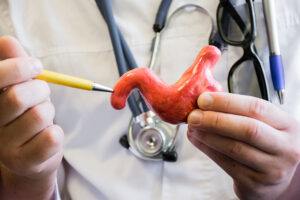Circumcision Complication Treatment
Child Health

Circumcision Complication Treatment
Circumcision, which involves cutting the foreskin at the tip of the penis in males, is a procedure performed in Muslim and Jewish communities. Although circumcision is the most commonly performed surgical procedure worldwide and may seem simple, it is not a simple procedure without complications. It must be performed by a specialist physician. It is known that complications occur in 1 out of every 1,000 circumcision procedures performed.
If the circumcision procedure is not performed by a specialist physician, this figure means complications occur in 100 out of every 1,000 procedures. This is because in procedures not performed by physicians, children are not examined for bleeding problems. No physical examination is conducted, and therefore very serious complications can arise.
What Are the Risks of Circumcision?
- The penis may not have the desired aesthetic appearance
- Injury may occur at the tip of the penis
- Surgical intervention may be required after circumcision
- Bleeding may occur at the incision site and may not stop
- All of the skin may not be removed and repeat surgery may be needed
- Difficulty may be experienced with urine flow to the tip of the penis
- Infection may develop
- Curvature of the penis may occur
These complications can occur much more intensively in circumcision procedures not performed by physicians. In fact, faulty circumcision is among the issues that should not be taken lightly. Very serious problems can arise, from displacement of the urinary opening to complete cutting of the glans, from sexual life difficulties to loss of urinary tract health. It is also known that these complications are seen more frequently in mass circumcisions.
Should Faulty Circumcision Be Treated?
Faulty circumcision is definitely a problem that needs to be corrected. If treatment is delayed, problems that are much more difficult or impossible to remedy may arise. We can list these problems as follows:
- Urinary tract stenosis
- Second opening in the penis
- Curvature of the penis
- Scar tissue formation during wound healing
- Aesthetic deformity
- Penile gangrene
How Is Faulty Circumcision Treatment Performed?
Faulty circumcision treatment is performed by urologist physicians. However, repair is required for treatment, and therefore surgical intervention becomes inevitable in most faulty circumcision cases. In the procedure performed under general anesthesia or sedation, the problem resulting from faulty circumcision is corrected. The goal is to perform a repair that will not cause long-term problems.
At What Age Should Circumcision Be Performed?
Circumcision can be performed at any age using local anesthesia. However, experts recommend that it be performed at an early age. Among the public, circumcision is generally performed after age 7. Performing it at earlier ages is also recommended to avoid traumatic effects. Since the senses are not highly developed during infancy, there is less pain when circumcision is performed. Since bleeding will also be much less, experts recommend that circumcision be performed during infancy, by a specialist physician, under sterile conditions. The risk of traumatic effects is also lower in circumcisions performed between 6 months and 2 years of age. Children may be more affected by circumcisions performed after age 2. The ideal choice would be newborn circumcision.
General Surgery 2















